Crowfall: Reinventing The Throne War Simulator
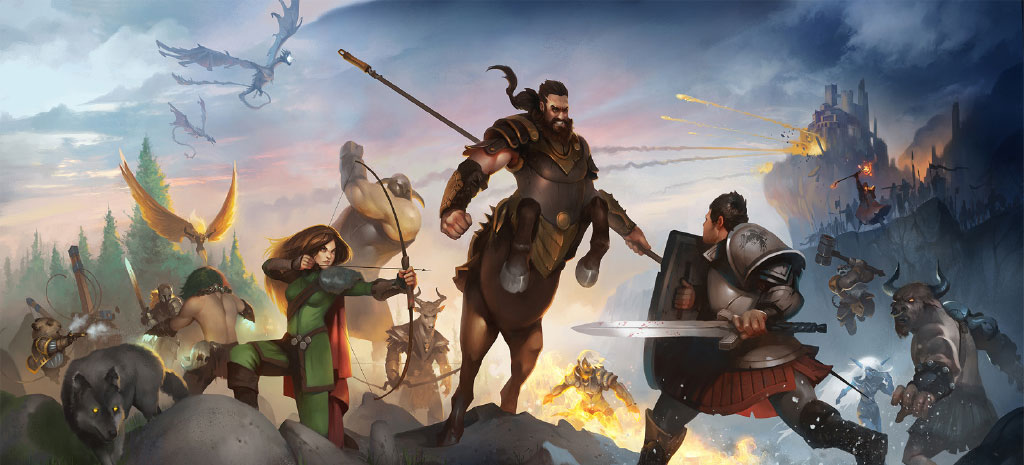
For those of us who remember Shadowbane, you can recall many epic battles fought among rival clans. Both with swords and with politics, the Throne Simulator was born. J. Todd Coleman was at the forefront of this new form of PvP MMORPG as one of the creators of the game Shadowbane.
Today, J. Todd Coleman joins us for a first look at his evolution of the Throne War simulator in the form of Crowfall.
Thank you for agreeing to this interview. We’re all really excited to see Crowfall come to market. Can we start by having you tell us a little about yourself and your background?
Sure. My name is J. Todd Coleman, and I make MMOs… that’s basically my career in a nutshell. In college, I studied business management and computer science and I’ve been an entrepreneur (basically) since graduation. I have an odd blend of “business management” skills (production, marketing, fundraising) and game design (writing, systems design, database design.)
My first venture was a database tools company called “Reliant Data Systems,” which was an early player in the ETL space… but that’s boring, so let’s not talk about it. The only important fact is that my ex-business partners and I sold that company to Compuware Corporation, and then we used those funds to start Wolfpack Studios, our first game company.
Wolfpack was created with one purpose: to create Shadowbane, an MMO that focused on territorial conquest in a fantasy world. You can see echoes of the Shadowbane vision very clearly in the design of Crowfall. Unfortunately, though, the legacy of Shadowbane is mixed: it had a bold, unique design vision that many players loved, but it was plagued by technical issues at launch. Wolfpack was sold to Ubisoft corporation, and my business partner and I left shortly thereafter.
With Wolfpack behind us, we came up with another game idea – a family-friendly MMO set in a wizard school, where you collect “spell cards” to summon monsters like pokemon. That game was Wizard101 and it was enormously successful. I spent 8 years at that company, and it was a fantastic ride. But then I left, because I felt like it was time to do something new.
That “something new” came along pretty quickly. I partnered with Gordon Walton to start ArtCraft Entertainment and build Crowfall.
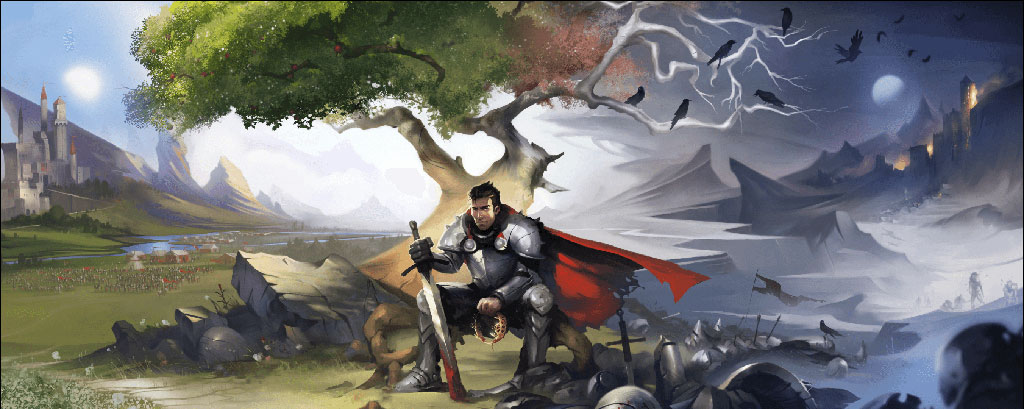
In your career, if you can name one technology or technique that made the development process easier, what would it be?
In terms of MMOs, there are a few. Unity is a big win, because a significant portion of your development budget typically goes into the creation of your engine and all the tools that surround it. Cloud computing is huge, because it means we don’t have to spend a few millions of dollars up-front to host your game servers; it also means that you can scale up your operational footprint almost instantly, if-and-when your game gains popularity.
And, of course, crowdfunding is making this entire new generation of MMOs possible – not just us, but games like Shroud of the Avatar and Camelot Unchained. Publishers have become increasingly risk averse when it comes to MMOs, and traditional venture capital are notorious for not wanting to invest directly in games (when they do, it’s usually after the game has become a hit, and the company is looking for financing to double down on existing momentum.)
If you look at all of the interesting games on the horizon, they are almost all imports (games that did well in a foreign territory that are being adapted for western markets) or visions that were compelling enough to attract financial support via crowdfunding.
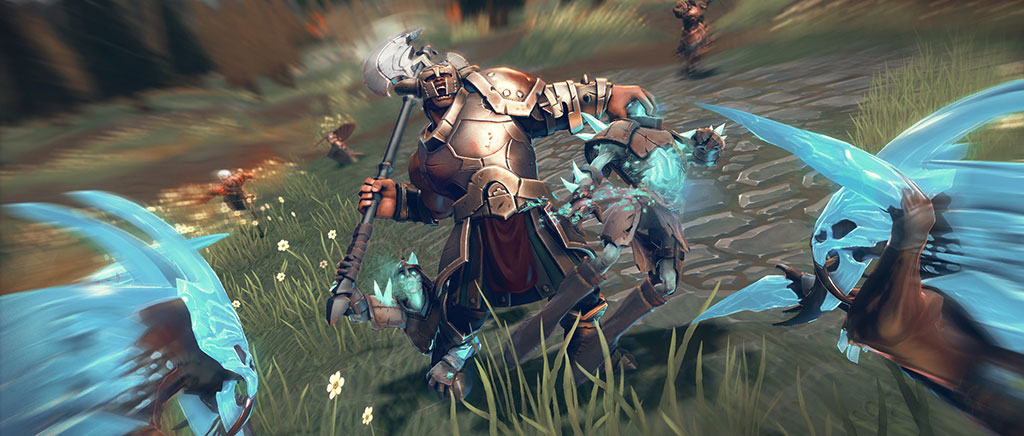
You’ve seen a full range of game development and participated in the industry for most of its advancing years. Can you tell us a little about the days past of being a Game Master for the MUD Scepter of Goth?
Yeah, I was just a kid when I was a GM on scepter of goth. They hired me without knowing how young I was, because they had never met me in person.
It’s funny, because this was pre-text based MUDs, which of course pre-date MMOs. Talk about “not-so-massively” multiplayer games… Scepter only allowed up to 7 people to play at once, all via dial-up modems.
Even then, I could tell this type of gaming was special. When you add other players into the virtual environment, even just a few, it takes on a weight – that sense of shared buy-in – that you really can’t get from a single player game.
I never predicted a hit like World of Warcraft, of course, but then again no one did. Not even the guys at Blizzard.

When did you know that you wanted to make games for a living? Was this something you always wanted to do?
I’ve always found the process of making games to be more fun than playing them. In college, though, I was told very directly by my professors: stop screwing around with games. That’s not a valid career path.
I believed them, which is why my first start-up was in database tools. Even at Reliant, though, I spent most of my free time either playing or working on text-based MUDs.
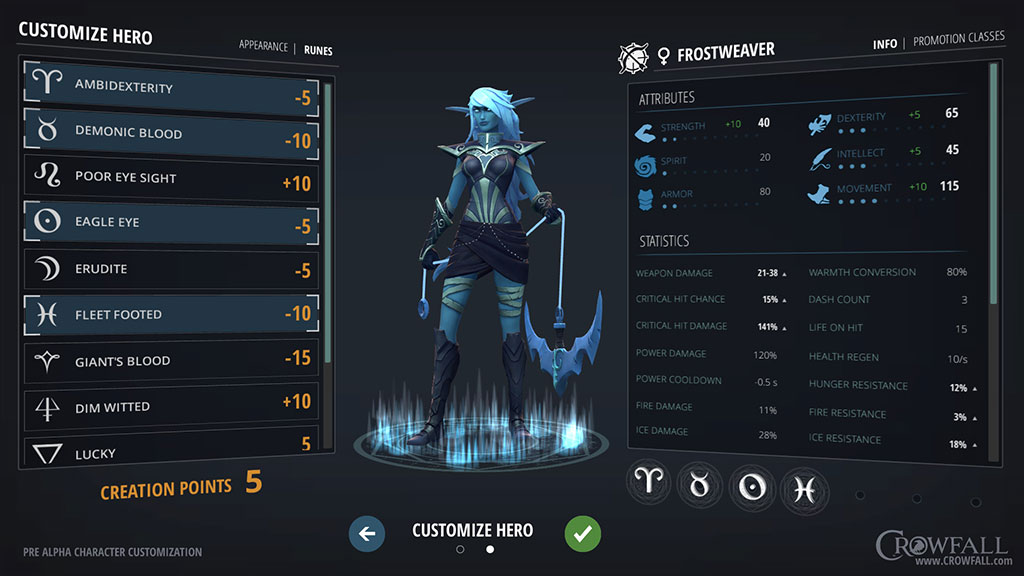
You’ve managed to take a dream of ambitious youth and turn it into a successful career that has taken you through several of the most influential titles in gaming history. With games like Shadowbane and Wizard 101 lining your past, and the ambitious Crowfall on the near horizon, what would you attribute to bringing this dream into reality?
Well, first, I served my time on a host of games that you’ve never heard of. Between Scepter of Goth and Chaos Mud and all of my early (failed) attempts to make an isometric 2D mud, I clocked my 10,000 hours before most people even knew that this genre of gaming existed (because it didn’t, yet.)
The other major factor is: I’m not just driven to make great games, I’m driven to build successful game companies. That means I do a lot of things that are outside of design: pitch to investors, build and maintain financial spreadsheets, negotiate contracts, work on hiring plans. I throw myself head first into all the stuff that “doesn’t seem like much fun,” and doing that buys me the opportunity to keep doing the things that I really enjoy.
Let’s talk about Crowfall. Can you tell us the general premise of the game?
Yes. The core of the idea is to break the traditional “amusement park” model of MMO design.
MMOs are a lot of fun, but at some point players recognize that they aren’t actually affecting the world around them. It’s a simple simulation, designed to continually return to a “fresh” state so that new players can experience the same content with limited variability in the experience.
That’s cool, and it certainly scales well to higher and higher player loads, but it also means that players can’t really DO anything impactful. The game is made to impact them, but they aren’t allowed to impact the game. Which means that they aren’t really active participants in the experience. The sense of interactivity in the world is largely an illusion.
We want to change that. In a game like Civilization (one of my all-time favorites), the players aren’t just -experiencing the world -- they are shaping it. You collect resources. You claim terrain. You go to war with your neighbor until one of you wins and the other is wiped off the map.

That’s the design goal we set out to solve: how do we bridge that experience with an MMO? Allow thousands and thousands of players to participate in a shared experience where the actions of one player can forever change the world?
The answer is to break the persistence in half: characters (meaning your dwarven warrior or elven rogue avatar) are persistent. You advance your character and you keep that advancement forever.
Worlds, though, are not. Each world isn’t an “amusement park” that can’t be altered. It’s a Campaign World, and we give the players the ability to break it. Like a Civilization map, it doesn’t last forever – it only lasts until someone wins. (Typically, a few months. but it could be longer or shorter.)
Because the worlds are temporary, because they go away forever once someone wins the strategy game, we can let the players wreck the place. We don’t hold ourselves to the idea that everything in the world needs to reset for the next player. Instead, the world can be constantly changing based on the actions of (and interactions between) the players.
You can build a castle. You can burn down a forest. You can dig a moat. You can build siege equipment and lay siege to your neighbor.
We have a whole bunch of other cool things that we are doing (like the Eternal Kingdoms, where you can build your own continent with mountains and rivers and castles without fear of them being destroyed – or our passive training system, where you can train offline) … but the heart of our vision, what makes it so unique, is the idea of permanent characters and temporal worlds.
We call it “Eternal Heroes, Dying Worlds.”
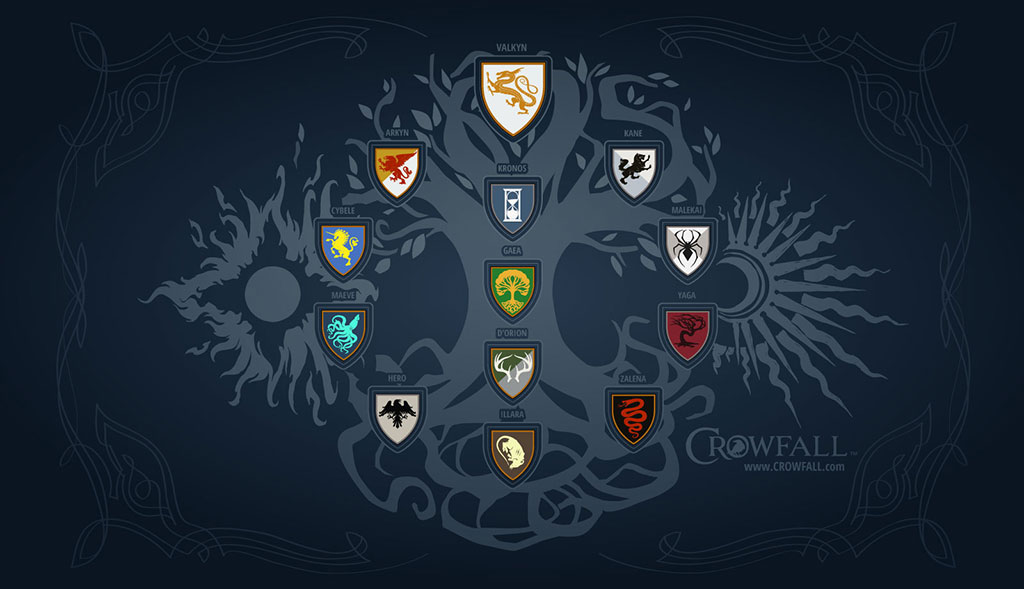
As you know in an MMO environment, community can make or break a game. How do you intend to make Crowfall a community friendly title? What type of activities can communities do together?
Well, I certainly agree with you, it is all about community -- but remember, community comes about in different flavors. Making friends and allies is only half of the equation; having a rivalry with another player (or guild) can be just as sticky.
This is an area where our game design is naturally strong. Crowfall is a game about guilds and noble houses vying for control of a virtual world, and that means it naturally lends itself (as a condition of winning and losing) to building those allies and enemies. If Shadowbane is a good indicator, the game should have a natural stickiness that leads to a vibrant community that will play for years.
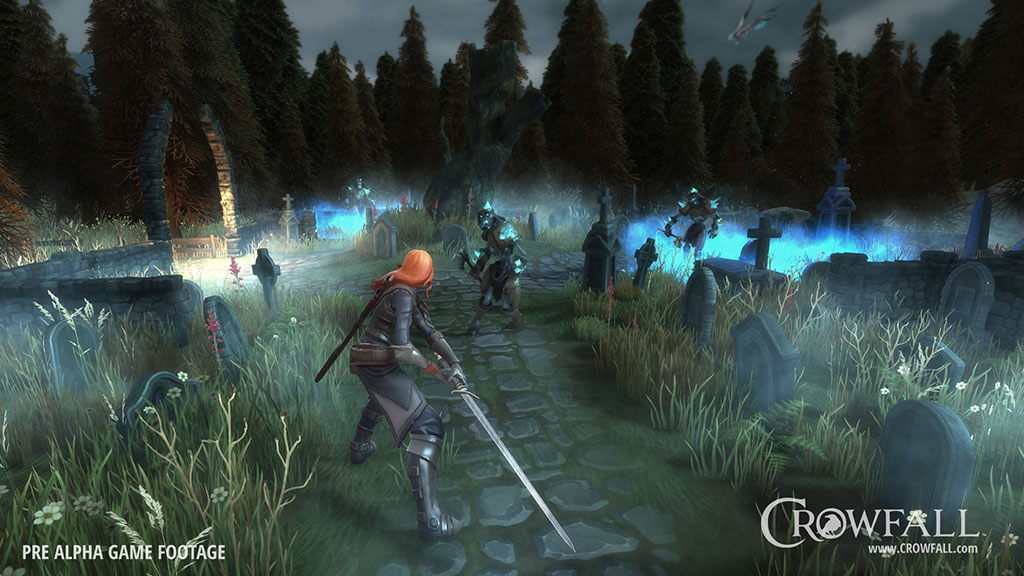
While discussing Guilds, how large can guilds become and will there be alliances?
We actually have a hierarchical guild structure. Guilds can recruit players, or sub-groups (which are basically groups-within-groups). There is a technical limit to the size, but I think it’s something like “a guild can hold 400 players or sub-guilds, and each sub-guild can contain up to 400 players.” Realistically, I don’t think players will ever hit that limit. Alliances will certainly happen; we’re not sure at this point how much of that will be through a structured system and how much we will leave it up to guilds to work out on their own.
Will there be some form of Guild Progression to give a community targets to shoot for?
Of course! Campaigns can be guild-focused (meaning you and your guild are striving for territorial control together) and that is a MUCH stronger set of cooperative goals than you’ve likely seen before in other MMOs.
We also have the Eternal Kingdoms, which are permanent servers that you can use as political and economic hubs between Campaigns. Some guilds won’t care about the EK, but other guilds absolutely will.
We designed the game to have three vectors of advancement:
Glory (conquer territory),
Wealth (build a kingdom), and
Power (rule an empire).
The first of those centers on the Campaign Worlds and combat. The second is the economy layer and crafting, the third is about the interplay between those two – the social side of the game (recruiting vassals, making allies, hiring mercenary companies, etc.)
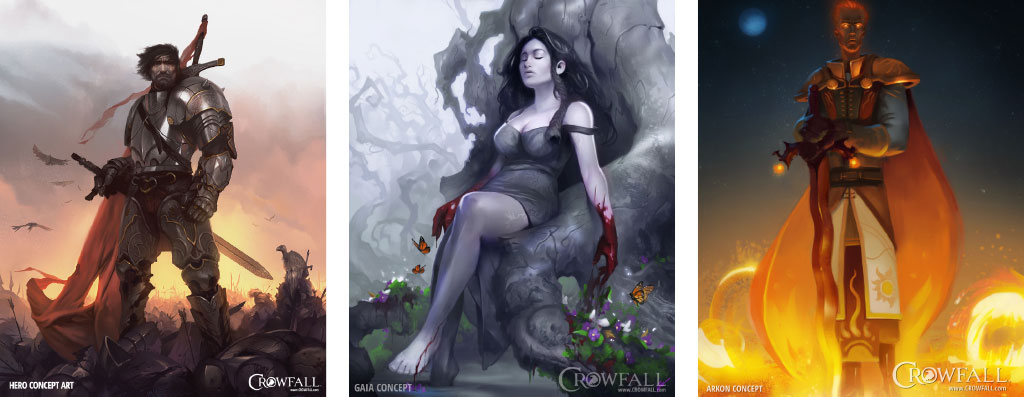
Crowfall is well known for it’s PvP focus. Is there any PvE in this game? Are there safe zones where you’re free to adventure without risk of being ganked?
There is PvE, but it’s not structured into a series of linear quests. The monsters exist to provide (low level) resources and to increase the threat level of the universe – like the zombies in an episode of The Walking Dead.
Because the Campaign Worlds are basically stand-alone games, that always means that we can change the rules between the different Campaigns. Again, to use my Civilization analogy, we will offer campaigns with more (or fewer) resources, with more (or less) land -versus- water, or more (or fewer) mountain ranges.
We have arranged the worlds on a spectrum: at the one end, you have the Eternal Kingdoms. These never go away (i.e. they are completely persistent, like a traditional MMO), they are player-run and the owner of the world can turn on or off PvP whenever they like. We offer Campaigns that are faction based (3 faction, 12 faction) and other Campaigns that are for guild warfare.
That’s the really cool thing about ditching the traditional MMO model where every realm or shard must be the same. We get to make dozens of variations of the rules, and let the players decide, over time, which one(s) they want to play.
Pure PvP games have a long history of having an initial rush to max level and then farm the new players just coming into the game. I myself have seen this in several games and it often is the reason I quit playing. How does Crowfall intend to discourage griefing of low level players by high level players?
We use passive training (like Eve Online) to determine advancement, and our power curve is really shallow.
Which means:
- First: there is no “rush to the max level”.
- Second: a maxed-out guy should be nervous of meeting 3 to 4 random guys in a dark alley.
- Third: you get to pick the type of Campaign world that you want to join.
Given all of the above, I don’t think the term “griefing” really applied. Part of the game is knowing where to go, and being prepared for the conflict that you might find there.
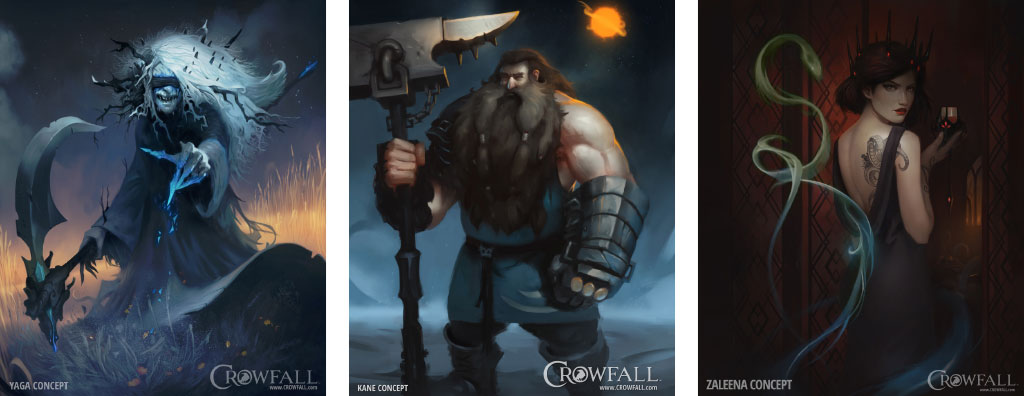
So the endgame is to take the throne. You’ve seen several games in recent years try this. Most of which were unsuccessful in making the mechanic fun for anyone other than the king/queen. Some make the king/queen a God which can wipe out armies by himself, some make the king/queen make the soldiers around them stronger. What is Crowfall’s take on the royalty system and how does it play into the game?
If you recall, earlier I mentioned that the three vectors were Glory, Wealth and Power. Our goal is to make those three separate tracks; you don’t “win” the Power game and suddenly get a huge artificial influx of combat skill (Glory) or resources (Wealth).
A lot of games tend to cross these lines; in order to be a great crafter, you HAVE TO level your character through combat. We’re trying to keep those separate, otherwise (to steal a quote from the Incredibles), “if everyone is special, no one is.”
If you want to be great at combat, you need to work at it. If you want to be an amazing crafter, you need to work at it. If you want to be a legendary monarch, you’re going to have to work at that, too. Some of it will be social capital (who you know and recruit), some of it will depend on skill advancement, some of it will rely on your ability to “manage” your kingdom effectively. This play style is the most free-form, as it really requires you to work with other players and “negotiate” what it means (and what it requires) to be a monarch.
How does one become a king or queen? Is it based on who plays the most or is it based on actual leadership ability?
There isn’t an artificial system for it. Yes, we have a guild management system coming online. We also have a fealty system that allows you to recruit vassals and carve up your kingdom and delegate the management to those vassals.
But those are tools. The political track is really free-form; there isn’t a series of repeatable tasks (or a mini-a game that you can play) to “become politically powerful.” It’s all soft skills, dealing with your fellow players.
As a fan of siege warfare, I have to ask, How are siege weapons controlled? Is it a skill based style (like Worms, Artillery, or Guild Wars 2) with hold and release for distance and angle or is it a select a ground target to aim and fire at (like Warhammer Online, Dark Age of Camelot and Elder Scrolls Online)? Also will it be free placement or fixed placement?
We’re working on this system right now, and it’s the focus of a large update that is coming later this month… which means that we aren’t ready to talk about it yet. We’ll be answering these questions, soon, though as our next big deliverable is Siege Perilous and it focuses on castle destruction and siege mechanics. We’re hoping to get that into testers hands in March.
Lastly, what advice would you offer to a young ambitious version of yourself, what pitfalls would you avoid, and what lessons should they embrace?
Education is helpful, but my lessons didn’t come from a “game design” class (because they didn’t exist at the time). I’m sure those programs are cool, so ok sure, take them if you can – but not at the expense of getting a broad base of knowledge: history, literature, creative writing… honestly, find stuff that really interests you and learn the hell out of it. The things that you find interesting are the things that will worm their way into your game visions, years later.
No one is going to hand you a bunch of money to make your dream game. It doesn’t work that way. There is typically only one reason people-with-money will give you money: so that you can make them more money. You need to figure out (and be able to convincingly explain) how you can turn $20 into $2000, or $1 million into $100 million. (Unless you have a rich uncle, I guess. I don’t know, I don’t have one.)
Find partners. Some people are multi-talented and can do everything. I’m not. Most people are not. So figure out what you’re good at (for me, it’s design and writing) and find other people who aren’t good at that. Partner with those people.
At the beginning, the quantity of your work is FAR more important than the quality of your work. The story of the child prodigy, who sits down at a piano and magically plays Beethoven at age 4, is a great story. It’s also completely false. Are some people naturally gifted at things? Sure. But in my opinion, that pales in comparison to experience. Make games. Write stories. Design games that you’ll never make. Every time you do it, no matter how bad it turns out, the next time will be a little better. Do it long enough, and you’ll get good. Do it good and someone will hire you. Then you can learn to do it great. And when you can make something great, you’ll have something to show to someone-with-money and make a convincing argument that they should trust you to turn $1 into $100. And THEN you can make your dream game.
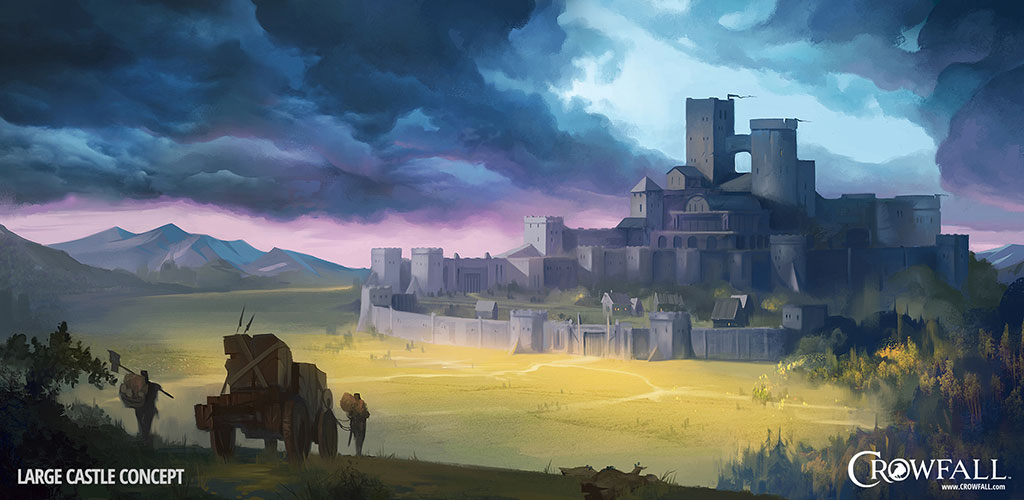
About the Author

Foghladha
Managing Editor
Foghladha founded the Gaiscioch Social Gaming Community in 2001 and has since been the founder & activities director for this well known community. His role has gone beyond just running the Gaming Community and now includes running the Athletics Program in Portland, Oregon, as well as acting as the Managing Editor of the Gaiscioch Magazine, and is the Lead Producer on the Gaiscioch Livestream Productions. Additionally he networks with game developers to form relationships between Gaiscioch and development studios.
His experience in publishing dates back to helping his Grandparents who operated a printing press for over 40 years. In high school and college Benjamin excelled in journalism and played an active part in the school newspaper. Foghladha currently works full time as the director of technology for a franchise trade publication & education company.
